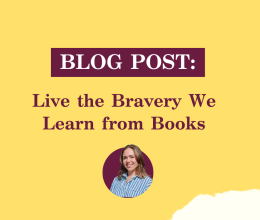
Fundraising is often incompatible with the idealism inherent to a career in non-profits. While many of us who work in this space dream of changing the world, we rarely dream of doing so by asking people to write checks. But the reality in this country is that work requires money—especially the work of dismantling longstanding systems of oppression. And grappling with the discomfort of asking for funding is an opportunity to deepen our connection to our work and the values that guide it.
Community Centric Fundraising (CCF) is a new model for social justice fundraising that has fundamentally shifted the way I think about my job. It establishes that fundraising must be grounded in race and equity; that economic justice is essential to liberation; and that everyone (including donors, staff, and volunteers) benefits from engaging in social justice work. Critically, it positions fundraising as a necessary tool, but one that should not be held as more valuable than other tools, such as time, effort, or a unique skillset.
CCF challenges practitioners to see themselves as part of an ecosystem of organizations whose collective success is more important than that of any individual. This is a radical posture in fundraising (and capitalism) where organizations are generally pitted against one another as competitors for funding. But when we take a community centric approach, we recognize that when we empower those around us, we deepen our impact and build collective strength. It encourages organizations to be more strategic, playing as a team working toward a bigger goal.
This principle is foundational to the work we do across departments at the ACLU of Alabama. When we engage in policy, organizing, or legal work, we begin by looking at which individuals and organizations are already engaged in that work, and how we can support them. We are committed to coalition building with the understanding that we are the most impactful when we uplift one another and work together.
This philosophy extends to our development department. We have posted grant writing resources on our website, understanding that many grassroots organizations do not have dedicated development staff; and we are always willing to consult with organizations on fundraising, including offering feedback on grant applications. In our own grants, we look for opportunities to bring pass through funding to partner organizations.
There aren’t really words to express the chaos and unravelling of the past ten years. Personally, I have felt pushed to the limit of what I can hold, emotionally and intellectually, more times than I can count. But when I feel overwhelmed, the most useful thing I can do is look at the tangible work we are doing at the ACLU of Alabama, and the work that our partners are doing to improve the lives of working people. Fundraising for that work—through actual dollars or through the donation of time or skill—is a real way to fight for the idealism that brought us into this field in the first place.
And so, I want to leave you with a question: what can you give? It might be five dollars, or it might be five minutes of your time, but whatever it is, it will have meaning. Do not give in to the overwhelm and inertia of the present moment. Find a worthy organization (of course I will recommend the ACLU of Alabama), one that embodies your values, and invest yourself.